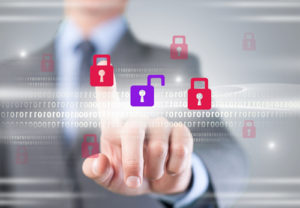 Last week we saw a news story where passwords to the popular business networking site LinkedIn were being offered for sale by scammers. The passwords were stolen around four years ago and at the time users were urged to change their password immediately so it’s probably unlikely that you were affected.
Last week we saw a news story where passwords to the popular business networking site LinkedIn were being offered for sale by scammers. The passwords were stolen around four years ago and at the time users were urged to change their password immediately so it’s probably unlikely that you were affected.
Password security is becoming a very hot topic these days so just what exactly can you do to make sure your password isn’t stolen?
Consider a passphrase
Hackers have scripts that will quickly try every dictionary word to hack your account, even using a uppercase character within the password won’t slow them up too much, neither will adding a number at the end of your password.
Instead, consider a phrase, for example MyPasswordIsVerySecure will never be cracked using a dictionary script, it’s easy for you to remember and long enough to never be caught by a random attacker script. If you then substitute a few characters for numbers or some easy to remember special characters then it’ll get even more secure and still remain easy to remember, MyP@ssw0rd1sV3rySecure.
Different passwords for different sites
This sounds like an impossible task, using different passwords for different sites however some security experts recommend using the same password but with differences for each site, for example MyP@ssw0rd1sV3rySecureAmazon. If your password is stolen in a compromised leak like what happened to LinkedIn customers then hackers can’t automatically use your password to gain access to other sites, though if instead of using a script a human looks at the password he may be able to crack your code, this is more unlikely though.
Keep it in a book
Surely not, writing down your password is number one on the list of definitely don’t, isn’t it? Well actually, experts are now suggesting this is probably a safer way to save your passwords, if your home is broken into a burglar will be interested in things he can sell quickly, not accessing your Facebook wall.
Make sure your bank password is different
Online bank accounts are the promised land for hackers so we advise using a completely separate password and passcode from anything you use elsewhere on the net.
Don’t give the game away
If you decide to use your pet’s name, your favourite singer or football teams name as your password then avoid telling the world on social media that you like these things. In actual fact try to avoid anything that is connected to you. Get out a map, find a small town in Indonesia and use that instead, unless of course you support Lhokseumawe FC!
Check your password
We came across this site which will tell you how long it would take for an automated script to hack your password : https://howsecureismypassword.net/ be warned though we didn’t enter any live passwords that we actually use online just to be on the safe side, but try it with a similar password to your own.
What is a password manager?
A password manager is a service, usually an online vault that saves all your passwords so you can access them through one mega safe password. Some people would be worried to use a password manager, especially since LastPass did detect an intrusion and warned customers to change their main password. It is worth noting that no saved passwords were stolen though.
You can get password managers that synchronise with all your devices.
Change your password regularly
We know it’s a chore but changing your password regularly will really help make sure you stay safe online. Password managers will help make it easier.
